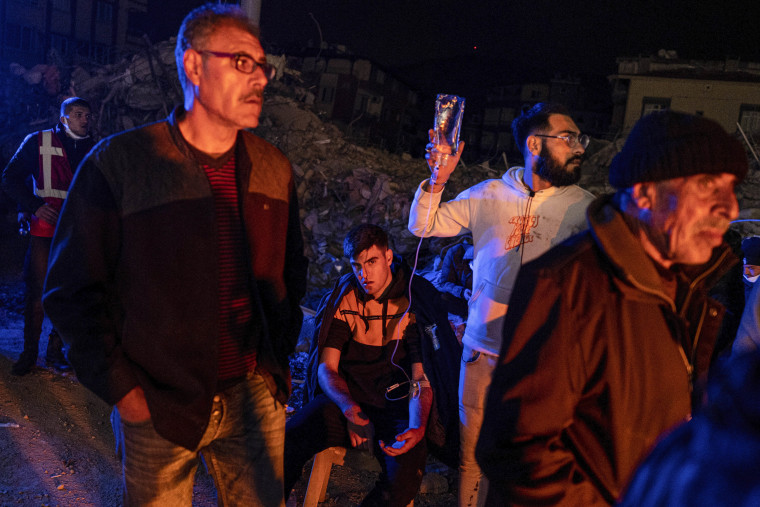A 6.3-magnitude earthquake hit the Syria-Turkey border Monday, the U.S. Geological Survey said, two weeks after the region was devastated by an earthquake that killed more than 44,000 people.
At least six people were killed and 294 others were injured in Turkey, The Associated Press reported, citing the country's disaster response agency. Two further people died in Syria, the news agency said, citing pro-government media, and more than 190 people were injured, according to Syrian Civil Defense, a volunteer organization.
The earthquake was centered near the city of Uzunbağ in Turkey's far south, near Syria and the Mediterranean Sea, according to the USGS. The Turkish government also reported the earthquake on its verified Twitter account.
It was the latest of thousands of aftershocks following the initial devastation Feb. 6, demonstrating how the lethal danger from earthquakes can continue long after the few seconds of the first one.
Reuters reported that the shaking set off panic and damaged buildings in the nearby city of Antakya and that the earthquake was felt at least as far away as Egypt and Lebanon.

The earthquake struck at about 8:04 p.m. local time, the USGS said.
"I thought the earth was going to split open under my feet," Muna Al Omar, a resident of Antakya, told Reuters, crying as she held her 7-year-old son in her arms.
"Is there going to be another aftershock?" she asked.
At least eight people were hospitalized in Turkey, Vice President Fuat Oktay said, according to The Associated Press.
Electricity was out in the Turkish coastal city of İskenderun, and some buildings collapsed there, Sky News Arabia reported, citing the mayor.
Teams of people conducted search-and-rescue efforts to find people who might be trapped in damaged buildings, including in Hatay province, the local news outlet HaberTürk reported early Tuesday local time.
Since the 7.8-magnitude earthquake on Feb. 6, thousands of less intense quakes have taken place in the region, according to the Turkish government.
Raed Ahmed, the director general of Syria's National Center for Earthquakes, said in a statement to SANA, Syria's state news agency, that the latest tremor qualified as an aftershock and that the aftershocks would most likely continue.
Syrian Civil Defense said on Twitter that people were injured by falling stone, stampedes or falls from buildings. Two uninhabited buildings collapsed in one city, and additional buildings cracked in multiple cities, the organization said.
In Aqrabat, Syria, children were evacuated from a hospital as a precaution despite near-freezing temperatures, according to video provided by UOSSM, a Syrian aid organization.
More than 1 million people have been left homeless in the middle of winter by the earthquakes in the two countries, according to Reuters, and Turkish President Recep Tayyip Erdoğan's government faces anger and criticism over building practices that failed to prevent collapses.
Erdoğan has pledged to rebuild housing in the disaster zone within a year, an ambitious goal made all the more difficult by the renewed scrutiny of safety standards. Cities that adhered to strict construction codes, such as Erzin, are becoming collection points for donations.
Authorities are also battling threats to public health, including intestinal and upper respiratory infections.
U.S. Secretary of State Antony Blinken announced more humanitarian aid in a visit to Turkey on Sunday, which brought total U.S. earthquake assistance in Turkey and Syria to $185 million.
The United Nations has appealed worldwide for more than $1.4 billion for relief operations.